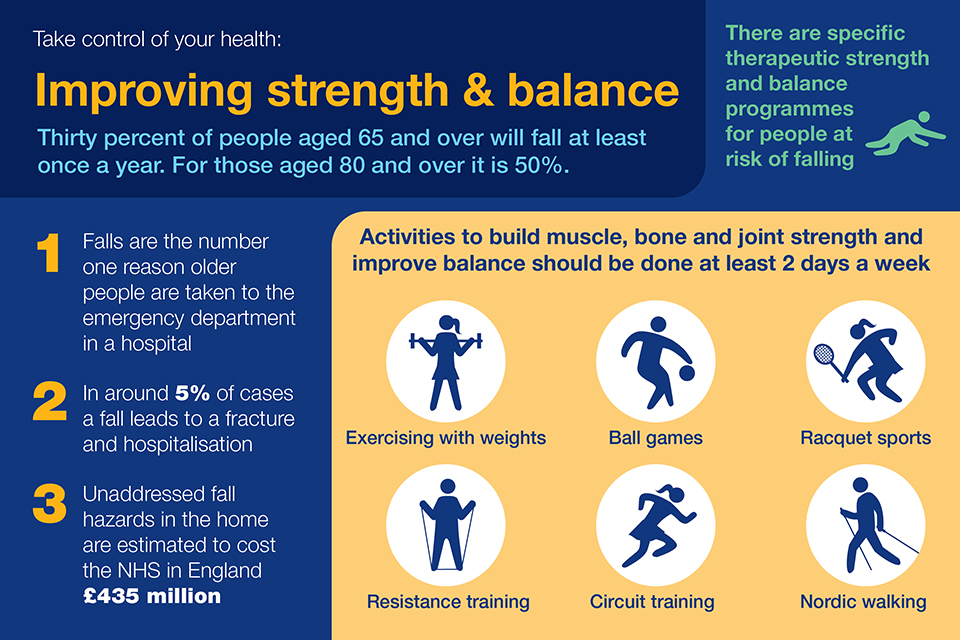The Definitive Guide to Dementia Fall Risk
The Definitive Guide to Dementia Fall Risk
Blog Article
Examine This Report about Dementia Fall Risk
Table of ContentsLittle Known Questions About Dementia Fall Risk.The Buzz on Dementia Fall Risk10 Simple Techniques For Dementia Fall Risk9 Easy Facts About Dementia Fall Risk DescribedEverything about Dementia Fall Risk
You may be anxious due to the fact that you have actually had an autumn prior to or due to the fact that you have actually discovered you're beginning to really feel unsteady on your feet. You may have discovered changes to your health and wellness, or just feel like you're reducing a little. Whatever the factor, it isn't unusual to become cautious and lose confidence, and this can stop you doing things you made use of to do and make you feel a lot more isolated.If you have actually had an autumn or you have actually begun to really feel unstable, tell your doctor even if you really feel great or else. Your physician can examine your equilibrium and the means you walk to see if renovations can be made. They may have the ability to refer you for a falls risk analysis or to the falls avoidance service.
This info can be acquired via interviews with the person, their caregivers, and a testimonial of their medical documents. Begin by asking the individual concerning their background of drops, consisting of the regularity and circumstances of any type of recent drops. Dementia Fall Risk. Inquire concerning any movement problems they might experience, such as unstable or problem walking
Conduct a thorough testimonial of the individual's medicines, paying specific attention to those recognized to enhance the danger of falls, such as sedatives or drugs that reduced high blood pressure. Identify if they are taking multiple drugs or if there have been recent changes in their medicine regimen. Evaluate the person's home setting for possible risks that could boost the threat of falls, such as inadequate lighting, loosened carpets, or lack of grab bars in the washroom.
The Only Guide for Dementia Fall Risk
Guide the individual through the loss threat assessment form, clarifying each question and tape-recording their actions accurately. Calculate the overall danger score based on the responses given in the assessment form.
This plan may include workout programs to boost toughness and equilibrium, medicine modifications, home adjustments, and referrals to various other professionals as required. Frequently keep an eye on the person's progression and reassess their threat of drops as required. Customize the care strategy based upon changes in their health and wellness condition or home atmosphere. Offer continuous education and learning and support to advertise safety and security and minimize the danger of drops in their day-to-day living activities.
Several research studies have revealed that physical treatment can assist to reduce the threat of dropping in adults ages 65 and older. In a brand-new research (that looked at drops risk in ladies ages 80 and older), scientists determined the financial impact of picking physical therapy to stop falls, and they located that doing so saves $2,144, consisting of all the surprise costs of your time, pain, missed out on life events, and the bucks paid for solutions.
What Does Dementia Fall Risk Do?
Inspecting your heart rate and high blood pressure measurements at rest and while you turn (from sitting or lying to standing). A straightforward test of your reasoning (cognitive) capabilities. Evaluating your balance, toughness, and walking capacity. A simple vision examination. Evaluating your feet and shoes. A home security assessment. Based upon the evaluation results, your physical specialist will make a plan that is tailored to your details needs.
Older adults that have problem strolling and talking at the exact same time go to a higher danger of falling. Dementia Fall Risk. To help increase your safety throughout daily activities, your physical therapist might make a training program look at more info that will certainly test you to maintain standing and walking while you do another job. Instances consist of walking or standing while counting backward, having a conversation, or lugging a bag of groceries
Your physiotherapist additionally can recognize which activities you should avoid to stay risk-free. Community-based drops prevention programs aid individuals to: Lower their anxiety of dropping. Set goals for enhancing their physical task. Make their homes safer. Exercise more to increase their strength and equilibrium. These programs usually are led by volunteer instructors.
All about Dementia Fall Risk

Measles, or rubeola, is an extremely transmittable, acute viral infectious disease created by the measles virus. Some people think of navigate here measles as just a rash and fever that cleans up in a couple of days; however, measles can cause significant wellness complications, particularly in youngsters more youthful than 5-years-old. The most effective protection versus measles is the measles, mumps, and rubella (MMR) injection.
Loss are an usual root cause of injury amongst older adults. According to the CDC, in one year alone, fall-related injuries added to over $50 billion in clinical expenses (Dementia Fall Risk). In hospital settings, older grownups are at particularly high threat of drops since their lowered movement from being restricted to a room or bed.
A Biased View of Dementia Fall Risk

She has a clinical background of seizure disorder and hypertension. She is receiving an IV infusion and taking Gabapentin and Lasix. She has no background of falls, her gait is consistent, and she nullifies with link no concerns. The previous registered nurse states that she calls for support to the washroom when she requires to go.
Instances of typical loss interventions/measures include: Making sure a person's essential things are within reach. Beyond comprehending just how to make use of the Johns Hopkins Loss Danger Analysis Tool, it's vital that facilities integrate its usage into a more thorough autumn avoidance plan.
Report this page